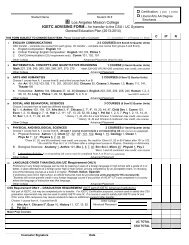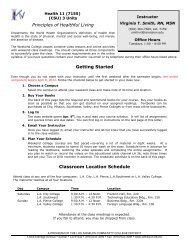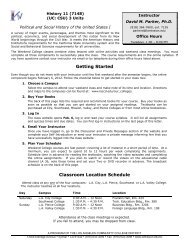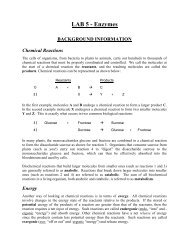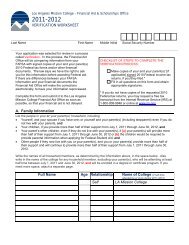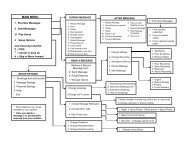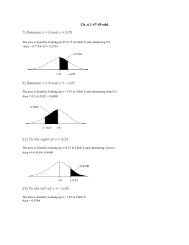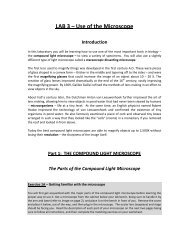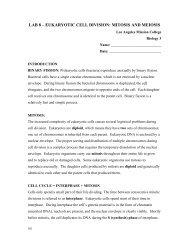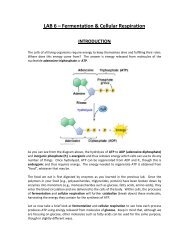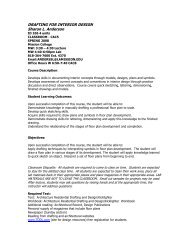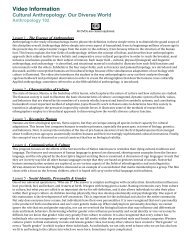Combining Sentences-Adverbial Clauses if - Los Angeles Mission ...
Combining Sentences-Adverbial Clauses if - Los Angeles Mission ...
Combining Sentences-Adverbial Clauses if - Los Angeles Mission ...
Create successful ePaper yourself
Turn your PDF publications into a flip-book with our unique Google optimized e-Paper software.
97<br />
Comma Usage<br />
1. Introductory Elements<br />
Use a comma for each of the following reasons.<br />
• Any introductory element with a verb form<br />
Staring into space, Susan thought about a long vacation.<br />
To succeed in l<strong>if</strong>e, one must work hard.<br />
After Sally kissed David, Hughes left the room angrily.<br />
• Introductory transitional expressions (conjunctive adverbs)<br />
Sandra wanted to leave early. However, she stayed until very late.<br />
Bob has some irritating habits; for example, he always loses his keys.<br />
In addition, be sure to review the price index.<br />
• Long introductory phrases ( 5 or more words)<br />
In the back of the room on the left, Sally found her missing shoe.<br />
By the end of the second half of the game, the fans were exhausted.<br />
• Noun in Direct Address<br />
Sylvia, the report that you requested is on your desk.<br />
2. Parenthetical ( Interrupting) Elements<br />
Use commas to enclose elements that interrupt the flow of a sentence. These elements<br />
often rename or describe another noun in the sentence. Some of these include<br />
• Appositives<br />
Samuel Smith, the new director, spoke to us about the problem.<br />
• Adjective clauses and other descriptive elements<br />
Joe Lopez, who works in the next office, borrowed your books.<br />
This old textbook, which I have owned for many years, has some good exercises.<br />
• Noun in direct address<br />
1 asked you, Robert, <strong>if</strong> you would like to leave early.<br />
3. Items in a Series<br />
Use a comma to separate three or more items (word, phrases, or clauses) joined with a<br />
coordinate conjunction (and, but, or, nor)<br />
• Jose, Martha, and Carl left early.<br />
• We went to the movies, to the mall, and to the restaurant.<br />
• She studiedfor hours, ate dinner, and went home.<br />
• She worked at the office, she called her friend, and then she drove home.<br />
4. Compound <strong>Sentences</strong><br />
Use a comma with a coordinate conjunction (and, but, or, for, nor, so, yet) to separate two<br />
related independent clauses.<br />
• Sylvia studiedfor hours, so she did well on the test.<br />
• Mr. Lopez hates to eat in restaurants, but his w<strong>if</strong>e loves to eat out.<br />
• The student had reviewed the lesson, yet he lacked confidence during the test.



